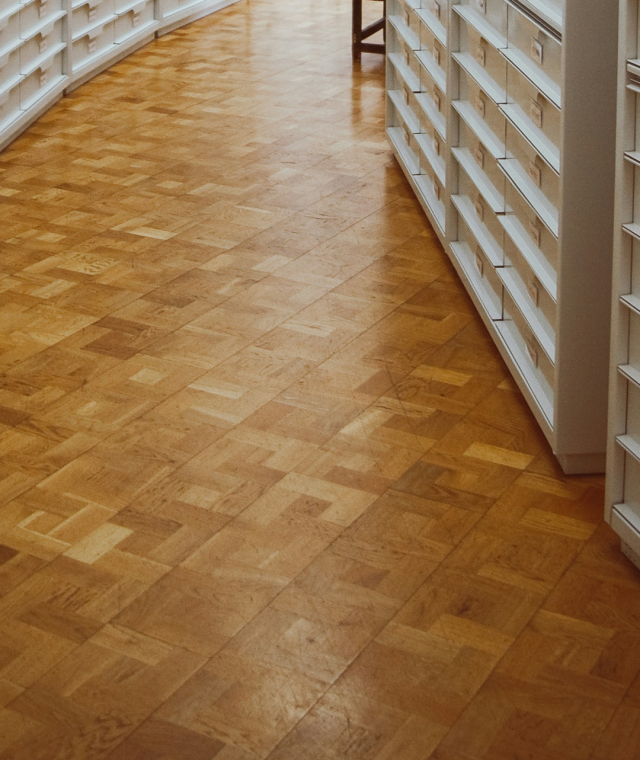With the funding for Primary Sources in Danish Art History (in Danish Kilder Til Dansk Kunsthistorie, KTDK), the foundation supports specific, delimited projects dedicated to such primary sources. For example, projects may focus on a specific oeuvre, a correspondence, a group of artists and associates, an authorship focusing on art history or the like. The source material may, for example, take the form of written, photographic or audio-visual material. In order to qualify for support, it must be possible to digitise the material in question and publish it in the database format on the foundation’s online portal, ktdk.dk.
In most cases, making the material accessible will, in addition to the digitisation process in itself, involve transcription and scholarly annotations on the material, depending on its nature and relevant professional considerations.
The New Carlsberg Foundation provides professional input, advice and technical assistance for the projects and also handles scanning and web development. Furthermore, the foundation checks and resolves copyright issues associated with the relevant source material.
The New Carlsberg Foundation wants to contribute to breadth and diversity in the world of art. Reflecting this, the Primary Sources in Danish Art History scheme offers support for a wide range of projects in terms of archival perspectives, geography, gender, periods and art forms.
Who can apply?
The grant accepts applications from institutions and individuals alike. However, in order to be eligible all projects must be hosted by an institution that manages the grant, for example a museum, archive or university.
Application deadline
One annual application deadline.
For deadlines and response times please, see under ‘Application deadlines’.
Application process
- An application is submitted.
- The board of the New Carlsberg Foundation selects a number of applications for further elaboration and qualification. This is done in cooperation between the applicant and the foundation’s secretariat and with the assistance of experts within the field of archival studies, possibly with the inclusion of peer reviewers. The purpose of this qualification process is to identify and clarify the framework for the individual projects, including estimating costs for digitisation, web development, transcriptions (if required) and similar costs which are defrayed directly by the New Carlsberg Foundation.
- Based on the elaborated applications and the projects’ total budget, the board makes a final decision on whether the project can be supported.
Criteria
The project must:
- be of high professional quality, specifically within the fields of art history and archival studies, and must be carried out by a candidate with relevant competences within the study, reading and annotation of sources.
- be based at a relevant institution.
- be of a scope which makes it possible to realise the project within 1 – 1½ full years’ work.
Costs eligible for funding
- Salary costs. These should, unless otherwise agreed, be on a level corresponding to the applicant’s current salary grade under Danish public-sector collective agreements.
- Expenses for any study trips and other expenses required for the completion of the project, including office space and overhead/administration contributions (up to 20%).
- Documented additional expenses in connection with maternity/paternity leave and sickness during the project period will also be covered.
- The applicant should not apply for support to cover expenses for scans, web development or copyright issues, as these are defrayed directly by the foundation.
The application must contain:
Please note that the application has to be uploaded as one combined PDF file with attachments and must not exceed 8 pages in total (incl. front pages and other graphic layout). Material that does not comply with formalities will not be included in the assessment.
- A project proposal of no more than two standard pages. This proposal must
- address and reflect the criteria outlined above.
- account for the nature, importance and scope of the relevant source material, arguing the feasibility of the project and indicating the estimated time required.
- include an estimate of the number of source units to be digitised (i.e. the number of scans to be carried out) and an estimate of the number of persons covered by copyright associated with the source material (letter writers, authors/copywriters, photographers, etc.)
- Illustrations of no more than two pages.
- Budget.
- An account of any co-financing or other funding already applied for/granted (if applicable).
Reporting
When the project is completed, the host institution must submit accounts and the person responsible for the project must fill in a brief questionnaire on the project and its findings.
Further inquiries
For additional information, please contact: Art consultant, Anne Barkholt, abp@ncf.dk, +45 53 58 57 16
